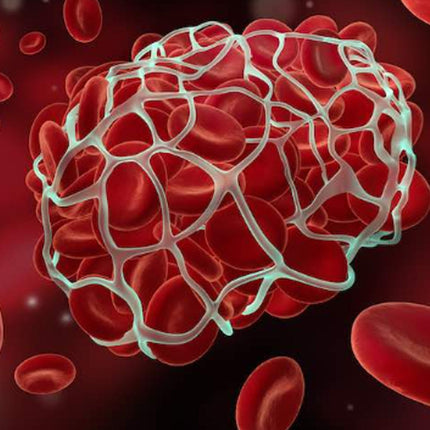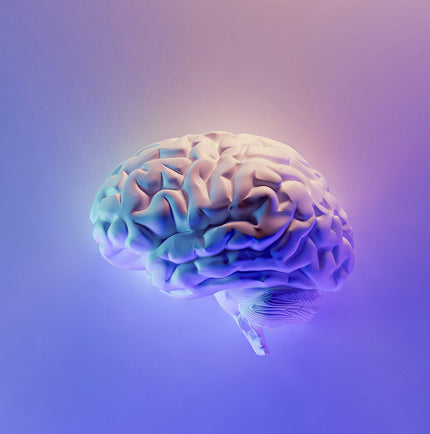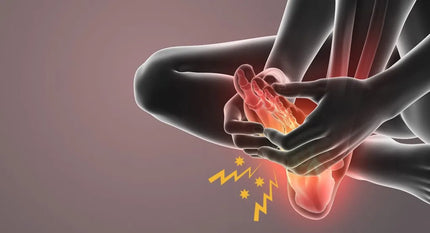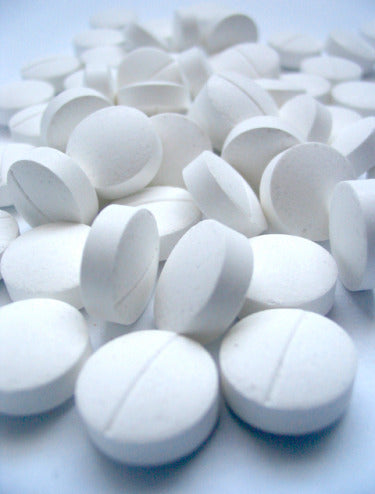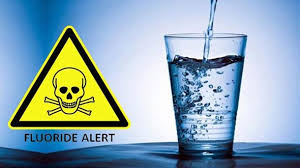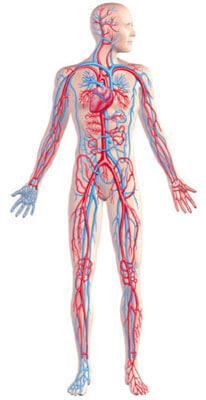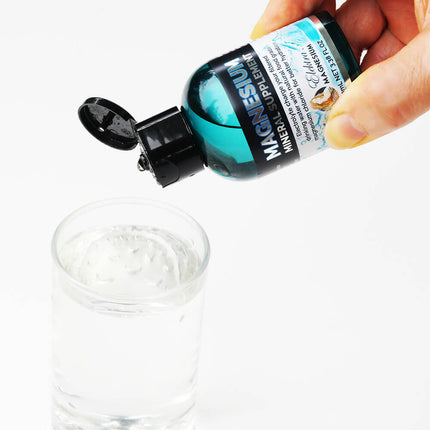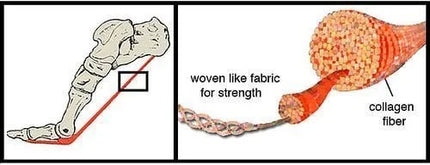Tax included and shipping calculated at checkout
Ionised Magnesium - Dissolved Natural Magnesium Chloride Salt - Ionic Magnesium
Source Water
 Ionic Magnesium Chloride: The single metal element of magnesium, an alkaline earth mineral, is a neutral molecule with 12 protons, 12 electrons and 12 neutrons, but it can't get access to enter cells unless it becomes ionised. 'Ionised' means that magnesium loses two electrons (-) in the outer shell, leaving two surplus positive charges (+) because the protons outnumber the electrons by two. So the ionic form of magnesium is Mg+2 (ie. 2 positive charges) floating around as free magnesium in the body's water.
Ionic Magnesium Chloride: The single metal element of magnesium, an alkaline earth mineral, is a neutral molecule with 12 protons, 12 electrons and 12 neutrons, but it can't get access to enter cells unless it becomes ionised. 'Ionised' means that magnesium loses two electrons (-) in the outer shell, leaving two surplus positive charges (+) because the protons outnumber the electrons by two. So the ionic form of magnesium is Mg+2 (ie. 2 positive charges) floating around as free magnesium in the body's water.
Why do salts form when we dehydrate ocean water? Because there is so much chlorine (a halogen) in the ocean, and the chlorine molecule has one missing space in its outer shell, ie. 7 electrons and one empty space waiting for the eighth electron space to be filled, when it encounters elements with surplus electrons in their outer shell like sodium or magnesium, they attract and bond in order to share their electrons (ie. sodium chloride, magnesium chloride etc).
The ionised magnesium (+2) gets bonded to two single chlorines so that magnesium and two chlorines then share the same two electrons spinning around in the outer shell of the stable salt compound of magnesium chloride (hexahydrate), 'hexahydrate' being 6 crystalised water molecules. Chlorine, after it steals the extra electron to complete its octet of electrons in its outer shell. thus becomes chloride, which is an ionised electrolyte. The most abundant mineral electrolyte in the body's cells is the chloride ion - making up about 70% of the body's total negative ion content.
Ionised electrolytes are required by cell mitochondria to function as our metabolic power houses to produce electrical energy. Much of the magnesium ion content of cells is stored in the cell membrane as part of mitochondrial ATP (adenosine triphospahte) and referred to as Mg-ATP, which works as a biological storage battery.
Hydration and Electrolyte Charge
When a cell encounters mineralised 'electrolyte' water it soaks up more water because of its negative (alkaline) charge. This increased hydration and electrolyte charge enables more functional cell transport, ie. detoxification and movement of wastes out, as well as movement of nutrients into the cell. You need the minerals present to hold water inside the cell. Without enough magnesium charge the cell membrane becomes weak and leaky. Athletes in particular can lose large amounts of magnesium through strenuous exercise and perspiration. Without enough electrolytes to charge the system it becomes harder to maintain healthy hydration levels.
When we can hydrate better we also produce a stronger cell voltage to lift energy levels. Drinking filtered water with added magnesium chloride hexahydrate (food grade) minerals, including 2% trace minerals such as potassium, calcium, iron, boron, silica, strontium, chromium and minimal sodium, improves hydration (and supports bone health too!). About one pinch of flakes (1/2 a gram) per litre of filtered water makes a tasty mineral drinking water and lifts the pH of filtered water from 6 to 7 or over. If you want to lift alkalinity even higher (ie. 7 to 8) then add a tiny amount of sodium bicarbonate (bicarb soda). This well rounded electrolyte mix tastes great and makes the water easier to drink without gagging - or running to the toilet so often!
Cell Voltage and Energy
Electrolyte BALANCE is the key to good health, and magnesium is the master controller electrolyte regulating calcium channel firing and retreat. Calcium gets pushed into the cell membrane channels for muscle fibre contraction (after stimulation by stress hormones), and magnesium swaps places when it's time to relax, bringing water back in to re-hydrate and expand. So we need magnesium to relax, to sleep, to detox, to digest, to exercise, to bolster the immune system, for hormone balance, for DNA repair and to build new cells. We need it for every process in the body that requires bio-electricity! Electrolyte salts dissolved in water enable electrical conductivity and cell voltage.
Cell voltage is directly related to pH. Good electrolyte balance in cells and blood plasma results in an ideal pH status of 7.35-7.45 pH (slightly alkaline). Slightly alkaline means we have just the right level of surplus electrons to keep things moving energetically and fluidly. Once magnesium chloride is dissolved in water it is already in the right form for cellular uptake and effectively absorbed by cells everywhere - including the epidermal layer (as in transdermal absorption).

Magnesium Chloride inside a matrix of six water molecules.
 Magnesium Chloride Hexahydrate (MgCl2+6H20).
Magnesium Chloride Hexahydrate (MgCl2+6H20).
Even in its dehydrated crystalised salt flakes form magnesium chloride hexahydrate still is about half made up of water - ie. water molecules forming a crystalline structure. The other half is approx 46-47% magnesium chloride plus 2-3% percent of mixed synergistic trace minerals. It is hygroscopic, hydrophilic, and water seeking: ie. Magnesium chloride salt absorbs moisture from the atmosphere until it eventually liquefies itself. It will always want to return back to its original liquid water state as soon as moisture is close by. In other words, magnesium 'wants' to dissociate and free float in the water if enough is available. It needs water and water needs it. The attraction between water and magnesium is very strong. The water molecules are in a sense competitive suiters looking to partner up with ionised magnesium (Mg2+). Magnesium's charge structures the water molecules, and is the foundation of the energy of life. Mitochondrial metabolism cannot work without magnesium and water. Water Dipole diagram of unstructured (A) and structured (C) water from Cells, Gels and the Engines of Life by Prof. Gerald Pollack
Water Dipole diagram of unstructured (A) and structured (C) water from Cells, Gels and the Engines of Life by Prof. Gerald Pollack
Structured Water
When water is charged with magnesium chloride electrolytes it causes the water molecules to assume a more ordered form, rather than random chaotic molecules as in 'bulk water'. That is, the salts cause the water molecule's north-south poles (2 Hydrogens moving closer to the north to form a dipole with the southern Oxygen) so they get 'thinner' and closer together, lining up like train tracks to form plains or sheets of water molecules sliding over one another. This promotes alkalinity and voltage, and becomes part of the structure of the cell plasma. It is why magnesium oil feels slippery or gel-like, and why mineral water has a soft mouth-feel with its alkaline contribution. This kind of charged mineral drinking water takes a bit longer to pass through the body because it is accessing cells more effectively and deliverig the necessary charge for the 'rhythm of life'. Conversely, if you drink de-mineralised water (rain water, reverse osmosis or distilled) it goes though your digestive system faster, sending you frequently to the toilet. Your body will take this 'empty' low pH water and look to steal electrons from somewhere else to get the right alkaline electron surplus to make the water useable and able to access the intra-cellular space. Demineralised water can actually deplete mineral stores even more by scavenging for existing mineral electrolytes in your body to join up with. This is one of the reasons why the medical profession advises against too much water, but what they should be cautioning against is demineralised water. It's magnesium water that cells need for the energy of life.
Blood Fluidity and Cell Charge
It is essential to the health of our blood and circulation to have sufficient water and electrolyte balance. These days we tend to consume too much sodium and calcium, and not enough of the other electrolytes - particularly magnesium. Too much sodium and/or calcium can push your blood pressure too high, whereas magnesium has a normalising effect on blood pressure. Magnesium and potassium work in tandem as powerful intracellular electrolytes, whereas calcium and sodium ions are mostly extra-cellular due to the antagonism and competition of charges.
"Mg-deficiency is followed by a K-deficiency, which cannot be equalized by K alone: a refractory hypokalemia always needs additional Mg supply for its restitution. From K, Mg-deficiency a Na/Ca-overload of the cell with aggravating consequences will follow: impaired activity and vitality with electric instability. Mg, which is responsible for development of a Ca-overload is also able to restore electrolyte homeostasis by sufficient supply competitively."
Magnesium is therefore integral to maintain cell wall integrity, electron charge and balance, storage of ATP, and calcium channel regulation. If you lose too much magnesium the cell wall becomes weaker and you are more prone to cell dehydration and electrolyte depletion. This leads to platelet stickyness and positive charge (attractive force) - correlating with low in pH, which stifles electron flow and fluidity, and hinders flexibility of muscle fibres, ligaments and joints. Low magnesium and water therefore interferes with electron flow and charge, causing cramps and involuntary muscle movements.
The negative charge of slightly alkaline water of the blood produces a repulsion of red blood cells so that they bounce off one another as they flow and move freely through the circulation, carrying more dissolved oxygen. This fluidity is called the Zeta Potential and allows more nutrients to access blood cells that are free and not clumped together, because they have more surface area for absorption potential.
Relaxation of Muscle Fibres and Flexibility
Magnesium has been found to be the most effective natural calcium antagonist and channel regulator. After calcium firing to contract muscle fibres, magnesium is used to relax the grip of the calcium. This relationship works a bit like a 'zipper' of muscle fibres closing and opening. When you are low in magnesium it becomes harder to open the zipper again and relax. This is expressed as cramps or locked up muscles and tendons in spasm.
What About Magnesium Tablets and Digestion?
Formulated tablets and powders containing lab-made compounds (usually chelated magnesium, magnesium citrate or magnesium oxide) must be digested in the stomach using hydrochloric acid. Many people today have issues with making enough stomach acid for digestion - especially when magnesium chloride levels are low. Note, magnesium chloride is used to make stomach acid, together with zinc, vitamin K, selenium and B group vitamins. Once the elemental 'ionic' magnesium is separated from the magnesium compound during digestion it then encounters another problem in that high concentrations of magnesium ions cannot pass across the gut wall. The gut wall is designed to accept magnesium in the lower concentrations of what would naturaly occur in foods and spring water. Any more than that is just wasted and excreted.
Oral magnesium supplements often contain fillers and tablet coatings to keep them dry and stuck together, to transit and survive the stomach acid, or assist the coating to be more slippery for swallowing: These magnesium tablets and powders can contain:
- Binders
- Disintegrants
- Fillers (diluents)
- Lubricants
- Glidants (flow enhancers)
- Compression aids
- Colors
- Sweeteners
- Preservatives
- Suspensing/dispersing agents
- Film formers/coatings
- Flavors
- Printing inks
Such additives can interfere with digestion and absorption of magnesium itself into the cell. Some people also suffer from clogged bowels, leaky gut syndrome or Crohns disease, which further compromise gut absorption of magnesium. Clinicians are finding that the average adult is lucky if they can even digest and absorb 20% of the magnesium from their swallowed tablets. For more information to compare magnesium tablets and gut absorption, see the study results in this article "How Did the Best Magnesium Tablets Perform in Testing?
Chelated Magnesium
Chelated magnesium tablets are made in a laboratory combining elemental magnesium with an amino acid. 'Chelating' means joining together or grabbing onto. Chelated magnesium compounds are generally better tolerated by the digestive system than other forms of magnesium tablets without explosive diarrhea (as can happen with oral magnesium sulphate, citrate or oxide), but there is little evidence showing that it's actually better digested or absorbed inside tissue cells. If your naturopath determines that you are low in other nutritional elements such as taurine, glycine, malic acid or other elements that are commonly compounded in the magnesium tablet, then by all means add those elements to your nutritional program.
However, in the case of low magnesium status, the body often needs a lot more magnesium than those tablets can provide. Note that our gut microbiome's health also relies heavily on magnesium's availability (in natural forms), in order to absorb nutrients, to maintain the endothelial lining and immune system, and to produce neurotransmitters for brain function. Low cell reserves of magnesium is also linked to depression.
Absorption and Bioavailability
There is only a certain concentration of magnesium that the gut wall can cope with absorbing at any one time, so it's best to take in only the concentrations of magnesium provided by Nature in magnesium-rich fresh foods and mineral water containing magnesium.
“Several authors have outlined that higher bioavailability is observed when a given amount of Mg is distributed over a day rather than being consumed in a single bolus (Schuette et al, 1990; Fine et al , 1991; Lonnerdal, 1995); consequently a regular water intake distributed throughout the day would be expected to lead to a higher absorption.”
“The low fractional absorption we observed for magnesium oxide (4 percent) is identical to that observed in prior studies of magnesium sulphate bioavailability… Results indicated significantly higher… bioavailability of magnesium chloride.”
Transdermal Ionic Magnesium
You can also gain magnesium by swimming in ocean water or soaking in mineral-rich hot springs. Transdermal Magnesium can bypass the digestive system altogether. The epidermal layer is able to absorb much higher concentrations of magnesium ions using dissolved magnesium and chloride ions, as this form requires no further digestion. It's faster acting and more efficient, and is often the only way to get large amounts of magnesium into the body in the case of leaky gut syndrome and other digestive disorders.
How Much Magnesium Water Should We Drink?
This will vary a lot depending on your age, body size/shape, level of physical activity and perspiration, whether you are on medications, exposed to chemicals or under extreme stresses. Remember, water and minerals are the basis of the cell plasma, which determines our energy production, with nutrients going in and waste products coming out. We have rivers in the body that rinse through cells, as long as the mineral electolyte balance is adequate. For a long time it was commonly thought that we are comprised of 70-75% water, however that is only measuring the volumetric liquids in our vessels and organs and fails to measure all of the water contained in the plasma of our cells, including the hard tissue of bone cells. Gerald Pollack in his water research has worked out we are 99% water molecules when all the moisture is added up:
“We are two-thirds water -- by volume. In terms of the percentage of molecules, that two-thirds figure computes to a lot of water molecules: more than 99% of our molecules are water molecules. Evidence suggests that those 99% don't merely sit as the background carriers of the more important molecules of life, but are central participants. All that the cell does depends on water.” Professor Gerald Pollack
All life depends on water as the bio-electrical energy of life flows through it by virtue of its electrolyte content. If you are not supplying sufficient clean water with minerals, chances are your cells will dehydrate and become polluted and acidic, and consequently vulnerable to pathogenic attack and inflammation.
Inflammation and the Immune System
Inflammation is a result of the immune system going into overdrive to deal with the crisis of pathogenic attack (pathogens preferring low pH cellular conditions), and in the process produces swelling or phlegm in various places. When the body is dehydrated it also starts to get squeezed via the cardiovascular system and muscles to conserve water loss. The brain tells the kidneys to hold back more sodium so as to pool up more water and alleviate dehydration of cells, and shows up as oedema. For the body to release the excess water and waste products we need more magnesium water charge.
Cramping, headaches and pain can result as swelling and oedema increases. The tubes in the body can become clogged and sticky without enough electrolyte (magnesium) water. The lung sacs can feel restricted, causing asthma. Blood pressure can go up. The waste products pooling up can attract pathogens, which trigger immune responses and flu symptoms. Remember when you were young and your grandma made you chicken soup to treat a cold? It worked wonders - and has done for millennia. That's because the bone and vegetable broth is rich in minerals (and essential fats) to help restore the gut microbiome and hydration in the body... You need a lot of mineralised liquids and liquid foods to recover from illness and to maintain wellness. Researchers are finding that an average of 2.5 to 3 litres of mineral water per 24 hours for an average adult is recommended for optimal hydration (and more if you perspire a lot).  Good Hydration with Mineral Water
Good Hydration with Mineral Water
Recommended Amount of Ionic Magnesium:
The recommended amount of elemental magnesium per adult per day is on average 400mg. Some people can need two or three times that amount to counteract the effects of trauma or chronic stress conditions. If you need higher amounts you are better off to absorb extra magnesium via skin (transdermally), as too much magnesium orally can cause loose stool or diarrhea.
A pinch (1/2 gram) of magnesium chloride salt flakes per litre of drinking water mimics natural spring water concentration, and is very tasty and easy to drink. Drinking 3 litres over 24 hours, with 80mg of elemental magnesium in each litre, you would get well over 200mg of magnesium actually making it through to the interior of the body. Remember that magnesium chloride hexahydrate is a naturally occurring food 'salt' (not a drug or synthesized product). It doesn't taste salty like sodium salt anymore, because the sodium chloride has been skimmed off during dehydration.
Magnesium chloride salt tastes bitter on the tongue directly. However when you use it very diluted as mineral water it has a pleasant smooth mineral water texture and alkaline taste. Adding natural magnesium chloride to your drinking water is just adding natural magnesium as food salt to your diet, the same as you would add sodium chloride to your diet when you sprinkle sodium salt on your food for taste, or when you add herbs and spices to your cooking. It's just food. Like with any food, you can also consume too much (concentrated) oral magnesium at one time (as a laxative), in which case you will notice a loosening of stool or diarrhea. In this case you are losing the magnesium too quickly from the digestive system before it has a chance to gain access to tissue cells. Your tissue cells may still be starving for more magnesium, but the digestive system is not able to cope with high-end delivery. Transdermal absorption allows better uptake for those with high-end needs.
Magnesium salt is particularly abundant in our oceans and mountainous regions (where once upon a time ocean waters existed before the mountains were raised up). However, the purity and quality of the salt harvested relies on the pristine nature of the original salt source, as well as how it is harvested and processed to ensure there are no introduced contaminants like toxic metals. Electrolyte composition of sea water[/caption]
Electrolyte composition of sea water[/caption]
For more information about ways to use and absorb Magnesium Chloride, see this article.
By Sandy Sanderson ©2016-2025
All Rights Reserved.
NOTICE: This article is for educational purposes only.







